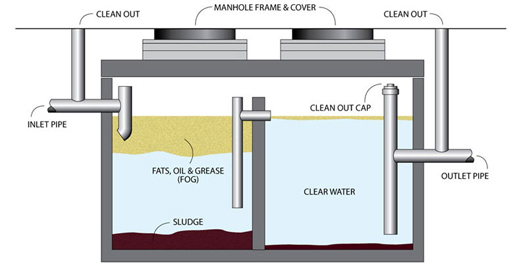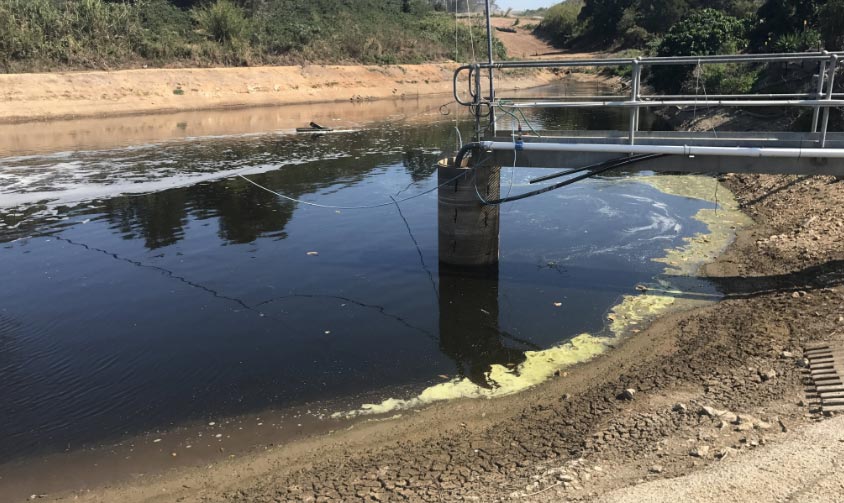Comprehensive Liquid Waste Disposal: Solutions for Residences and Services
Comprehensive Liquid Waste Disposal: Solutions for Residences and Services
Blog Article
Recognizing the Comprehensive Process of Liquid Waste Disposal: Finest Practices and Environmental Influence Factors To Consider
The monitoring of fluid garbage disposal is a multifaceted problem that calls for a comprehensive understanding of numerous best practices and their linked environmental impacts. From the kinds of liquid waste generated to the approaches used for collection, treatment, and last disposal, each action plays an essential role in protecting environments and public health. As regulative standards develop and modern technology advances, the conversation around these procedures ends up being significantly pertinent. What ramifications do these adjustments hold for future sustainability efforts, and how can stakeholders make certain that they are appropriately addressed?
Sorts Of Liquid Waste
Comprehending the numerous types of liquid waste is essential for efficient monitoring and disposal techniques. Liquid waste can be broadly categorized right into a number of kinds, each requiring unique handling and therapy strategies.
Industrial fluid waste frequently consists of hazardous materials, including hefty metals, solvents, and chemicals, created throughout manufacturing processes. These wastes require strict governing conformity to shield human health and the atmosphere. Domestic liquid waste largely refers to wastewater created from houses, consisting of sewer and greywater, which, although much less harmful, can still present substantial threats if improperly taken care of.
Agricultural fluid waste, consisting of overflow from farms, often contains plant foods and pesticides that can result in ecological destruction otherwise treated appropriately. Medical fluid waste, generated from medical care centers, includes contaminated fluids such as bodily fluids and chemicals, requiring specialized disposal methods to avoid infection and ecological contamination.
Lastly, oil and oil waste, normally produced by dining establishments and vehicle sectors, can cause serious clogs in sewage system systems if not managed properly. Recognizing these classifications helps with targeted techniques for therapy, conformity with policies, and reliable disposal techniques, inevitably promoting environmental sustainability and public health security.

Collection Techniques
Effective collection techniques are crucial for the correct administration of liquid waste, making certain that it is gathered safely and successfully before therapy or disposal. Different strategies are used depending upon the kind of liquid waste generated, the volume, and the details qualities of the waste.
One typical method is using committed collection storage tanks or sumps, which are designed to catch fluid waste at the source. These systems typically incorporate pumps that assist in the transfer of waste to larger storage space containers or treatment facilities. Additionally, mobile collection devices furnished with vacuum modern technology are used in situations where waste is created intermittently or in hard-to-reach places.
For commercial settings, closed-loop systems can efficiently lessen spills and leaks, enabling the recovery and reuse of fluid waste. It is also important to educate personnel on appropriate collection methods to mitigate dangers associated with harmful substances.
Additionally, carrying out regular maintenance timetables for collection devices ensures optimum efficiency and safety. The integration of sophisticated monitoring systems can enhance collection performance by providing real-time information on waste levels and possible dangers. Generally, effective collection techniques are fundamental to lasting liquid waste monitoring techniques.
Therapy Procedures
Treatment processes play you could look here an important function in the administration of fluid waste, changing possibly harmful materials right into secure effluents or reusable sources - liquid waste disposal. These procedures can be extensively categorized into physical, chemical, and organic approaches, each customized to resolve specific impurities existing in the waste stream
Physical treatment methods, such as sedimentation and filtration, job by removing put on hold solids and particle matter. These methods are usually the very first step in the therapy chain, properly lowering the lots on subsequent processes. Chemical therapies entail the usage of reagents to neutralize harmful materials, speed up heavy metals, or oxidize natural pollutants, therefore boosting the security see this page of the effluent.
Organic treatment procedures, consisting of activated sludge systems and anaerobic digestion, maximize the natural capacities of microorganisms to weaken raw material. These approaches are particularly reliable for wastewater having eco-friendly pollutants. Advanced treatment modern technologies, such as membrane filtration and progressed oxidation procedures, are progressively used to attain higher levels of filtration.
Including a combination of these therapy techniques not only makes certain conformity with governing standards but additionally advertises ecological sustainability by recuperating important resources from fluid waste.
Disposal Options
Just how can organizations guarantee the responsible and safe disposal of fluid waste? Effective disposal choices are crucial for protecting public health and wellness and the atmosphere. The key approaches consist of land disposal, incineration, and treatment complied with by discharge right into community wastewater systems.
Land disposal includes the cautious containment of liquid waste in assigned garbage dumps, making certain that it does not seep right into surrounding soil or water. Incineration, on the other hand, topics fluid waste to high temperature levels, converting it into ash and gases, which call for correct purification to lessen emissions. This method appropriates for contaminateds materials that can not be treated with standard ways.
In situations where liquid waste can be treated, organizations may choose biological or chemical treatment procedures to counteract unsafe parts prior to releasing the treated effluent into metropolitan systems. This path commonly straightens with regulative demands, guaranteeing that the effluent meets security standards.
Inevitably, companies have to carry out thorough assessments of each disposal option to identify its feasibility, taking into consideration variables such as waste composition, regulative conformity, and prospective threats to health and the setting. By choosing proper disposal methods, organizations click here for info can add to an accountable waste administration method.
Environmental Impact
The environmental effect of liquid waste disposal is an essential factor to consider for companies seeking to decrease their eco-friendly footprint. Furthermore, the discharge of unattended or improperly dealt with waste right into surface area waters can result in eutrophication, leading to oxygen deficiency and the subsequent fatality of fish and various other microorganisms.

To mitigate these impacts, companies have to adopt best practices such as applying strenuous waste therapy procedures, advertising recycling and reuse, and sticking to governing requirements. By taking a positive method to liquid waste management, entities can substantially decrease their environmental impact while sustaining lasting development objectives. Eventually, a detailed understanding of the ecological impacts associated with fluid waste disposal is vital for notified decision-making and responsible stewardship of natural deposits.
Conclusion
Efficient management of fluid waste is crucial for safeguarding environmental stability and public health. Inevitably, a detailed understanding of fluid waste disposal not just alleviates ecological impacts yet also promotes a commitment to liable resource administration and ecological stewardship.
The management of liquid waste disposal is a complex issue that needs a thorough understanding of various ideal techniques and their associated ecological influences. From the types of fluid waste produced to the approaches utilized for collection, treatment, and final disposal, each step plays an important function in safeguarding ecological communities and public wellness.The environmental impact of fluid waste disposal is an important consideration for companies looking for to reduce their environmental impact. Eventually, a detailed understanding of the environmental impacts connected with liquid waste disposal is essential for educated decision-making and responsible stewardship of all-natural sources.
Ultimately, a detailed understanding of liquid waste disposal not only minimizes ecological effects however likewise cultivates a commitment to accountable resource administration and ecological stewardship.
Report this page